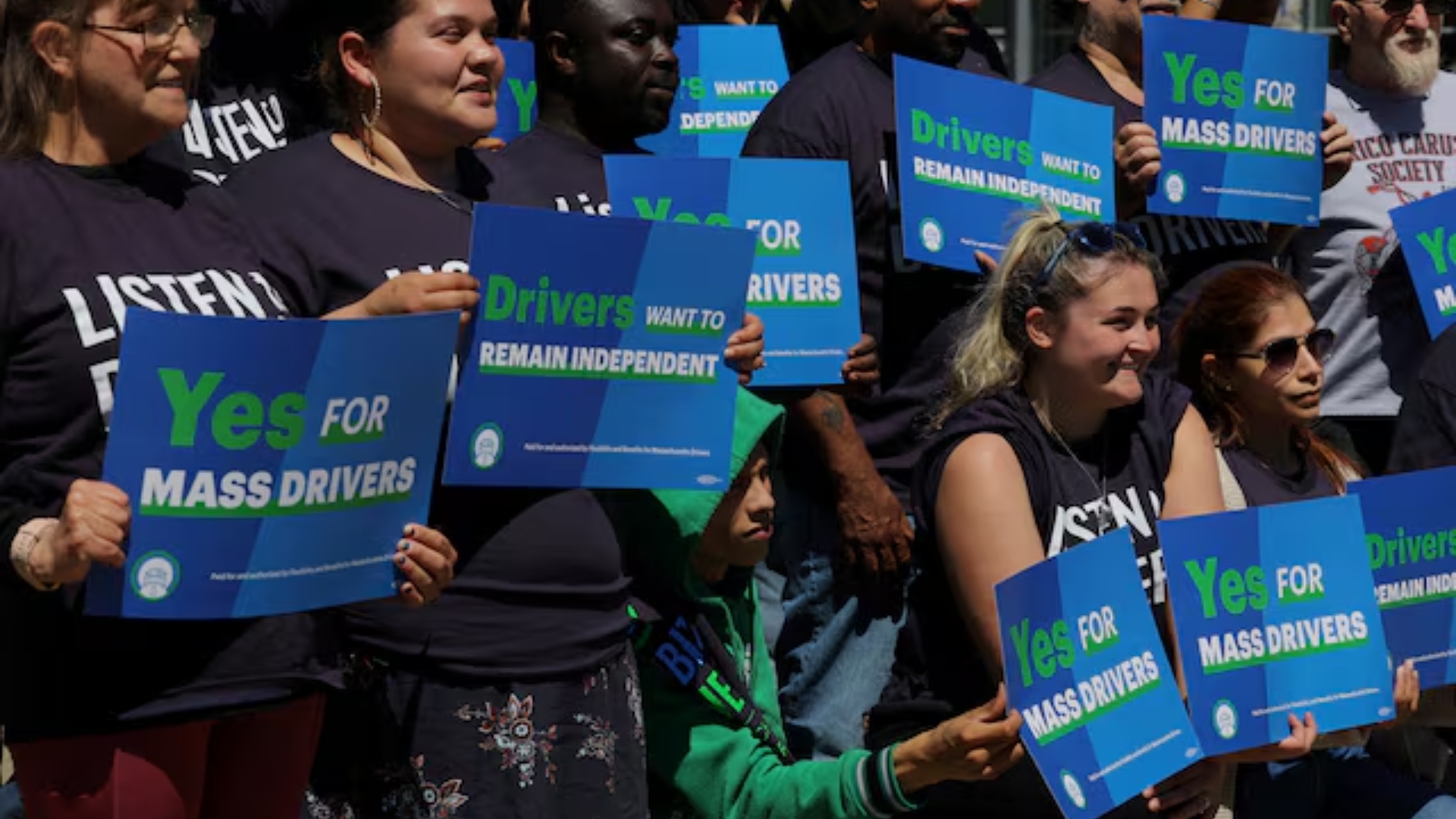BOSTON, (Reuters) – Massachusetts’s highest court on Monday weighed whether ballot proposals that would redefine the relationship between app-based companies like Uber Technologies and Lyft and their drivers should be allowed to go before voters in November.
Massachusetts Supreme Judicial Court justices expressed concern, during oral arguments in Boston, over parts of an industry-supported group’s proposal to ask voters to affirm that under state law, drivers are independent contractors with some new benefits but cannot be considered company employees.
But the six justices appeared unlikely to fully embrace a labor-backed coalition’s argument that the proposal runs afoul of the state’s constitution by broadly carving out the drivers from a “laundry list” of unrelated worker protection laws.
Jennifer Grace Miller, a lawyer for the measure’s opponents, said voters would be asked to weigh in on not one policy question but a series of separate areas of employment law that could not legally be bundled together for their consideration.
However, Justice Dalila Argaez Wendlandt asked whether the measure could be viewed as addressing a single policy proposal, that “app drivers aren’t the employees of the companies that match them up with rides.”
The justices appeared likely to reject a conservative group’s argument that the state attorney general wrongly certified a competing measure for inclusion on the ballot. That measure, backed by the Service Employees International Union’s Local 32BJ, would ask voters to allow Uber and Lyft drivers to unionize under state oversight.
Justice Scott Kafker envisioned a world where voters sided with the industry yet deemed the drivers as contractors with the right to engage in collective bargaining.
“This seems to be what’s good for the goose is good for the gander,” Kafker said.
A May 13 trial is due in a 2020 lawsuit by the state’s attorney general accusing Uber and Lyft of misclassifying their drivers as contractors, not employees, for years.
Should the industry fail in court and at the ballot box, Uber and Lyft could face a sweeping overhaul of their business model. Uber’s lawyers have said in court papers such a change could force it to cut or end service in Massachusetts.
Uber and Lyft, along with app-based delivery services Instacart and DoorDash, have spent millions of dollars to support the ballot proposal that would cement the status of their drivers as contractors under state law.
Using contractors can cost companies as much as 30% less than hiring employees, various studies showed.
Flexibility and Benefits for Massachusetts Drivers, a ballot measure committee whose contributors include the four ride-share companies, is also proposing setting an earnings floor for app-based drivers and providing them healthcare stipends, occupational accident insurance and paid sick time.
Thaddeus Heuer, a lawyer for the measure’s proponents, said his clients had “a common purpose of defining that relationship as not employer-employee.”
The state high court in 2022 blocked a similar industry-backed ballot measure over a provision it deemed unrelated to the proposal.
To hedge its bets this time, the group is gathering signatures for five versions of the ballot question, only one of which it would have put before voters on Nov. 5.
Kafker, in his argument on Monday, questioned a provision tucked into the broadest of those five versions that would require drivers claiming they were fired for discriminatory reasons to appeal to the employer.
“Generally don’t have the person who’s accused of discrimination decide whether they discriminated,” he urged.
A ruling is expected ahead of a July 3 deadline for the ballot measures’ proponents to submit signatures to the secretary of state.
Reporting by Nate Raymond in Boston, Editing by Will Dunham, Alexia Garamfalvi and Richard Chang











